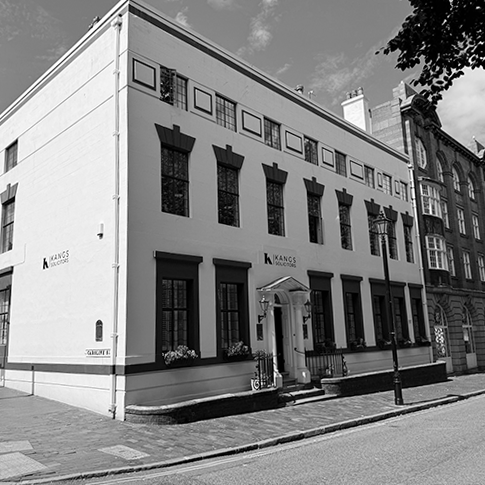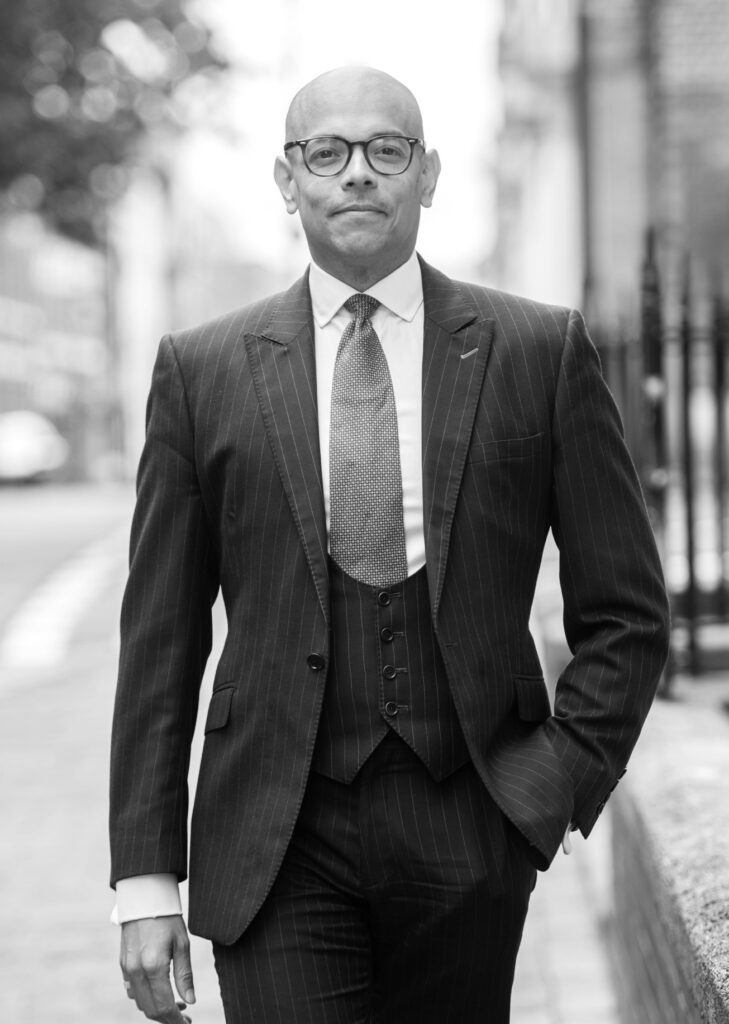Counterfeit Goods and Forgery

Counterfeit consumer goods are goods which have been made or sold under a brand name belonging to another without the permission of that owner.
Such goods are, typically, of inferior quality and those selling them commit a number of offences including infringement of trademark, patent or copyright by passing off such fake goods as original branded items.
Hamraj Kang of KANGS indicates the relevant law.
Counterfeit Goods | Why are they a Problem? | KANGS Counterfeit Goods Offences Defence Solicitors
Counterfeiting involves the theft of a trademark belonging to another conducted by criminals seeking to profit from the established reputation of its owner.
The reputation of the trademark owner can be seriously damaged by the imitation of its goods given that counterfeit items are invariably of a poorer quality. The mere association of the fake item with the branded name may have a detrimental effect.
Counterfeit goods appear in multiple industries such as music, clothing, tobacco, jewellery, perfume, software, medical equipment, pharmaceuticals and art.
Purchasing counterfeit goods simply to gain a lower price can be dangerous given that such goods are frequently made with substandard and dangerous components.
Counterfeiting is not a victimless crime and trade in counterfeit or fake goods is considered by the United Nations Office on Drugs and Crime (UNODC) to have a detrimental effect on Governments, businesses and individuals given the accompanying loss of tax revenue, business income and jobs.
Investigations into the possession, distribution or creation of counterfeit goods are conducted by a number of enforcement agencies such as Trading Standards, HMRC and the Police which, primarily, derive their powers from the Forgery and Counterfeiting Act 1981 (‘the Act’).
The Relevant Law | KANGS Fraudulent Trading Offences Defence Solicitors
There are four relevant offences created by the following sections of the Act:
- Forgery
- Copying a false instrument
- Using a false instrument
- Using a copy of a false instrument.
‘1 The offence of forgery.
A person is guilty of forgery if he makes a false instrument, with the intention that he or another shall use it to induce somebody to accept it as genuine, and by reason of so accepting it to do or not to do some act to his own or any other person’s prejudice.
2 The offence of copying a false instrument.
It is an offence for a person to make a copy of an instrument which is, and which he knows or believes to be, a false instrument, with the intention that he or another shall use it to induce somebody to accept it as a copy of a genuine instrument, and by reason of so accepting it to do or not to do some act to his own or any other person’s prejudice.
3 The offence of using a false instrument.
It is an offence for a person to use an instrument which is, and which he knows or believes to be, false, with the intention of inducing somebody to accept it as genuine, and by reason of so accepting it to do or not to do some act to his own or any other person’s prejudice.
4 The offence of using a copy of a false instrument.
It is an offence for a person to use a copy of an instrument which is, and which he knows or believes to be, a false instrument, with the intention of inducing somebody to accept it as a copy of a genuine instrument, and by reason of so accepting it to do or not to do some act to his own or any other person’s prejudice.’
As shown, there exists a variety of offences arising from the use of a false instrument i.e., the counterfeit item.
The Act states:
8 Meaning of “instrument”.
(1) ………….in this Part of this Act “instrument” means—
(a) any document, whether of a formal or informal character;
(d) any disc, tape, sound track or other device on or in which information is recorded or stored by mechanical, electronic or other means.’
‘False’ is defined at section 9 of the Act:
‘(1) An instrument is false for the purposes of this Part of this Act—
(a) if it purports to have been made in the form in which it is made by a person who did not in fact make it in that form; or
(b) if it purports to have been made in the form in which it is made on the authority of a person who did not in fact authorise its making in that form; or
(c) if it purports to have been made in the terms in which it is made by a person who did not in fact make it in those terms; or
(d) if it purports to have been made in the terms in which it is made on the authority of a person who did not in fact authorise its making in those terms; or
(e) if it purports to have been altered in any respect by a person who did not in fact alter it in that respect; or
(f) if it purports to have been altered in any respect on the authority of a person who did not in fact authorise the alteration in that respect; or
(g) if it purports to have been made or altered on a date on which, or at a place at which, or otherwise in circumstances in which, it was not in fact made or altered; or
(h) if it purports to have been made or altered by an existing person but he did not in fact exist.
(2) A person is to be treated for the purposes of this Part of this Act as making a false instrument if he alters an instrument so as to make it false in any respect (whether or not it is false in some other respect apart from that alteration).’
If an instrument can be shown to be false, the Prosecution must also prove ‘intent’ i.e., that a defendant intended an act or omission to be induced by another to their prejudice.
Section 10 of the Act states:
‘Meaning of ‘’prejudice’’ and ‘’induce’’
(1) Subject to subsections (2) and (4) below, for the purposes of this Part of this Act an act or omission intended to be induced is to a person’s prejudice if, and only if, it is one which, if it occurs—
(a) will result— (a) will result—
(i) in his temporary or permanent loss of property; or
(ii) in his being deprived of an opportunity to earn remuneration or greater
(iii) in his being deprived of an opportunity to gain a financial advantage otherwise than by way of remuneration; or
(b) will result in somebody being given an opportunity—
(i) to earn remuneration or greater remuneration from him; or
(ii) to gain a financial advantage from him otherwise than by way of remuneration; or
(c) will be the result of his having accepted a false instrument as genuine, or a copy of a false instrument as a copy of a genuine one, in connection with his performance of any duty.
(2) An act which a person has an enforceable duty to do and an omission to do an act which a person is not entitled to do shall be disregarded for the purposes of this Part of this Act.(2) An act which a person has an enforceable duty to do and an omission to do an act which a person is not entitled to do shall be disregarded for the purposes of this Part of this Act.
(3) In this Part of this Act references to inducing somebody to accept a false instrument as genuine, or a copy of a false instrument as a copy of a genuine one, include references to inducing a machine to respond to the instrument or copy as if it were a genuine instrument or, as the case may be, a copy of a genuine one.
(4) Where subsection (3) above applies, the act or omission intended to be induced by the machine responding to the instrument or copy shall be treated as an act or omission to a person’s prejudice.
(5) In this section “loss” includes not getting what one might get as well as parting with what one has.’(5) In this section “loss” includes not getting what one might get as well as parting with what one has.’
Punishment Upon Conviction | KANGS Criminal Defence Solicitors
The offences under section 1-4 of the Act are all ‘either way’ offences, meaning they can be tried either before the Magistrates’ Court or a Crown Court depending upon the seriousness of the offence.
If found guilty, an offender is liable to a fine, a maximum term of ten years imprisonment or both.
How Can We Help? | KANGS National Criminal Defence Solicitors
If you or your business are or become subject to an Investigation or Prosecution by a law enforcement agency for any alleged criminal activity, including counterfeiting or forgery, it is essential that you seek immediate specialist assistance and representation.
KANGS offers substantial experience defending criminal allegations of counterfeiting as well as acting in civil claims involving Intellectual Property Disputes.
By way of example, our Team recently successfully represented a client company which was investigated by Trading Standards for the alleged possession of counterfeit designer items in its storage warehouse.
Our effective representations and communication with Trading Standards resulted in the allegations being completely withdrawn.
Our nationally recognised Team is available to assist you via telephone 0333 370 4333.
Enquires are also welcome via email: info@kangssolicitors.co.uk
We provide initial no obligation discussion at our three offices in London, Birmingham and Manchester. Alternatively, discussions can be held virtually through video conferencing or telephone.




